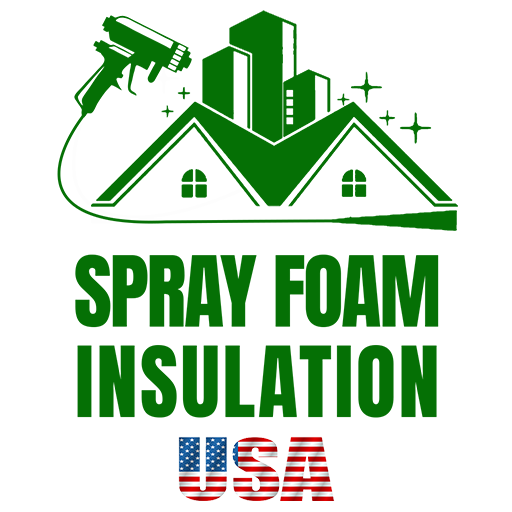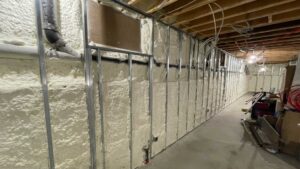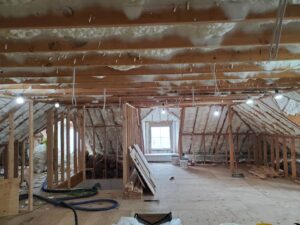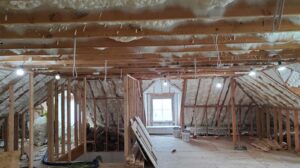Introduction
When it comes to commercial pipe insulation, businesses and homeowners alike are on the lookout for options that not only enhance energy efficiency but also contribute to a greener planet and help save on energy bills. In a nutshell, the right pipe insulation can significantly reduce energy loss, guard against freezing, and improve the overall comfort and safety of your premises. To simplify your search, here’s a quick glance at what you need to consider:
- Efficiency: Opt for materials with high R-values for better thermal resistance.
- Durability: Choose options that withstand environmental conditions and physical wear.
- Eco-friendliness: Look for insulation solutions that minimize environmental impact.
By focusing on these essentials, you’re set to make an informed choice on insulation that meets your needs, offering a blend of performance, sustainability, and cost-efficiency.
In a clear and straightforward manner, this article will delve into the importance of commercial pipe insulation, its role in enhancing energy efficiency, and a comparison of the top five insulation materials available in the market. Whether you’re a business owner aiming to reduce operational costs or a homeowner looking to improve your property’s energy performance, understanding the nuances of commercial pipe insulation is the first step towards achieving your goals.

Understanding Commercial Pipe Insulation
When it comes to keeping your commercial building both energy-efficient and comfortable, commercial pipe insulation is a must. This section will guide you through the basics of thermal, acoustic insulation, and the types available.
Thermal Insulation
At its core, thermal insulation is about minimizing energy loss. Whether it’s keeping hot water hot as it travels through pipes in a hotel or maintaining chilled water in a refrigeration system, insulation helps. It’s like putting a cozy blanket around your pipes, but this blanket is designed to keep energy costs down and efficiency up.
Did you know? Insulating your commercial pipes can reduce energy loss by up to 90%! This isn’t just good for your budget; it’s great for the planet too.
Acoustic Insulation
Noise can be a big problem in commercial settings. Think of a hospital where peace is crucial or an office where concentration is key. Acoustic insulation wraps around pipes to muffle the sounds of water rushing or heating systems working. It turns down the volume on your building’s internal workings, creating a quieter, more pleasant environment.
A quiet fact: Properly insulated pipes can reduce noise transmission by up to 25 decibels. That’s the difference between the sound of a quiet library and a busy office!
Types of Commercial Pipe Insulation
There’s no one-size-fits-all when it comes to insulation. Here are a few types you might consider:
- Phenolic Foam: Super efficient, making it a top choice for energy savings.
- Rubber Insulation: Flexible and great for controlling temperatures.
- Fiberglass Insulation: Offered by brands like Owens Corning and Johns Manville, known for durability.
- Polyethylene Foam: Common in household plumbing, it’s lightweight and easy to handle.
- Mineral Wool: Excellent for fire resistance and thermal properties.
Each type has its strengths, whether it’s the eco-friendliness of mineral wool or the temperature regulation of rubber insulation. The key is to match the insulation to your building’s specific needs.
The right insulation doesn’t just save energy; it can also protect against pipe freezing, reduce wear and tear on your HVAC system, and even keep your building safer.
As we move into the next sections, think about what your building needs most. Is it maximum energy efficiency? Soundproofing? Or maybe a focus on sustainability? Keep these needs in mind as we explore how to choose the right commercial pipe insulation for your project.
In the next section, we’ll dive into the Top 5 Commercial Pipe Insulation Materials, comparing them side-by-side to help you make the best choice for your building.
As we transition, choosing the right type of commercial pipe insulation is the first step towards achieving your goals. Whether it’s saving on energy bills, creating a quieter workspace, or ensuring your system runs smoothly, there’s an insulation solution that fits.
Top 5 Commercial Pipe Insulation Materials
When it comes to commercial pipe insulation, the material you choose plays a crucial role in the performance and efficiency of your system. Let’s break down the top five materials to consider:
Phenolic Foam
Efficiency: Phenolic foam stands out for its excellent thermal insulation properties. Its low thermal conductivity means it’s great at keeping heat where you want it – inside the pipes. This efficiency can lead to significant energy savings over time.
Kingspan Kooltherm: A leading brand in the phenolic foam market, Kingspan Kooltherm offers products specifically designed for pipe insulation. Their solutions are known for high performance, making them a popular choice among professionals.
Rubber Insulation
Versatility: Rubber insulation is known for its flexibility and ability to fit snugly around pipes of various shapes and sizes. This versatility makes it an excellent option for complex plumbing systems.
Temperature Regulation: Rubber insulation performs well across a broad temperature range. It can handle extreme heat and cold, ensuring that your pipes are protected no matter the weather.
Fiberglass Insulation
Durability: Fiberglass is a durable material that can withstand the test of time. It’s resistant to moisture, mold, and mildew, which are common issues in commercial settings.
Owens Corning, Johns Manville: Both Owens Corning and Johns Manville are reputable manufacturers of fiberglass insulation. Their products are designed to meet the rigorous demands of commercial applications, providing reliable insulation with long-lasting performance.
Polyethylene Foam
Armaflex Tubolit: Armaflex Tubolit is a brand known for its polyethylene foam insulation products. This material is lightweight and easy to install, making it a go-to for projects that require a quick turnaround.
Household Plumbing: While polyethylene foam is used in various applications, it’s particularly well-suited for household plumbing. Its flexibility and water-resistant properties make it ideal for protecting pipes from freezing in residential settings.
Mineral Wool
Fire Resistance: One of the standout features of mineral wool is its excellent fire resistance. In the event of a fire, mineral wool can help prevent the spread of flames, making it a safe choice for commercial buildings.
Thermal Properties: Beyond its fire-resistant qualities, mineral wool also offers superior thermal insulation. It’s effective at reducing heat transfer, which can help maintain desired temperatures and reduce energy costs.
As we delve into the installation and maintenance of these materials, it’s clear that each has its unique benefits. From the energy-saving efficiency of phenolic foam to the versatile temperature regulation of rubber insulation, there’s a material suited to every commercial need. Whether you prioritize durability, ease of installation, or fire safety, understanding these top five commercial pipe insulation materials will help you make an informed decision for your project.
Installation and Maintenance
After choosing the right commercial pipe insulation material, the next big step is installation and maintenance. This part is crucial because even the best insulation won’t perform well if it’s not installed correctly or maintained.
Pre-slit and Self-sealing Options
Many commercial pipe insulation products come pre-slit, meaning they have a longitudinal slit along their length. This design makes it super easy to open the insulation and wrap it around the pipe. For an even simpler installation, look for self-sealing options. These have adhesive strips along the slit that you press together to seal after placing the insulation around the pipe. It’s like putting a jacket on your pipes and zipping it up!
ASJ/SSL Jacketing
All-Service Jacketing (ASJ) is a white paper jacket that covers the insulation. It’s reinforced with nylon mesh for durability and has an aluminum foil backing to act as a vapor retarder. This jacketing is especially important in humid environments to prevent the cold pipes from sweating. The Self-Sealing Lap (SSL) system on this jacketing makes it easy to seal the longitudinal seams of the insulation, ensuring a continuous vapor barrier.
Fitting Covers
Pipes aren’t just straight runs; they have elbows, tees, and valves. That’s where fitting covers come in. Made from the same materials as straight-run pipe insulation, these pre-molded pieces fit over the joints and bends in your piping system. They ensure that every part of your system is insulated, which is vital for energy efficiency and preventing condensation.
Maintenance Tips
While commercial pipe insulation is designed to last, it does require some maintenance. Regularly check the insulation for damage or signs of wear. If the outer jacketing is compromised, it can allow moisture to penetrate the insulation, reducing its effectiveness. If you notice any damage, repair it immediately with the appropriate tape or adhesive. Also, keep an eye on the seals at the joints and seams. Over time, they may need to be reinforced with additional tape to maintain the vapor barrier.
By following these installation and maintenance guidelines, you can ensure that your commercial pipe insulation performs optimally for years to come. Proper installation and regular maintenance not only protect your pipes but also maximize energy savings and efficiency in your commercial space.
We’ll delve into the factors to consider when choosing pipe insulation, ensuring you have all the information you need to select the best option for your project.
Factors to Consider When Choosing Pipe Insulation
When it comes to choosing the right pipe insulation for your commercial projects, there are several key factors you need to consider. These factors will help you ensure that your choice not only meets your immediate needs but also aligns with long-term efficiency and sustainability goals.
R-Value
First and foremost is the R-value. This measures the insulation’s ability to resist heat flow. The higher the R-value, the better the insulation’s performance in keeping heat in or out, depending on your needs. For commercial pipe insulation, selecting a material with the right R-value is crucial for energy efficiency. This means less energy is needed to heat or cool the space, leading to significant cost savings over time.
Temperature Range
Next, consider the temperature range the insulation needs to withstand. Commercial pipes can carry fluids at a wide range of temperatures, from hot steam to chilled water. The insulation material you choose must be suitable for the specific temperature range of your project. For instance, fiberglass insulation is designed for a surface temperature range of 0°F to 850°F (-18°C to 454°C), making it a versatile choice for many applications. However, for extreme temperatures, especially in industrial settings, other materials might be more appropriate.
Environmental Impact
Lastly, the environmental impact of the insulation material is a significant factor. Today, sustainability is more important than ever. Choosing eco-friendly insulation not only helps reduce your project’s carbon footprint but can also contribute to a healthier environment inside and out. Materials like fiberglass and mineral wool are often made from recycled content and are themselves recyclable, making them excellent choices for projects where sustainability is a priority.
When selecting commercial pipe insulation, balance these factors with your project’s specific needs. The right insulation will not only protect your pipes and reduce energy consumption but also support your sustainability goals and ensure long-term savings. Always consult with insulation experts to understand the best options available for your unique requirements.
Frequently Asked Questions about Commercial Pipe Insulation
When it comes to commercial pipe insulation, we all have questions. Let’s dive into some of the most common ones to help clear things up.
What is the most efficient pipe insulation?
The most efficient pipe insulation depends on what you mean by “efficient.” If we’re talking about keeping heat in, materials like fiberglass and phenolic foam are top-notch. They have high R-values, which means they’re great at slowing down heat transfer.
For example, fiberglass insulation is not only durable but it can withstand high temperatures, making it a solid choice for a variety of commercial applications. On the other hand, phenolic foam, with its low thermal conductivity, is excellent for keeping the heat exactly where you want it.
How does pipe insulation prevent freezing?
Insulation works like a cozy blanket for your pipes. It slows the movement of heat from the water inside the pipe to the cold air outside. This means the water takes a lot longer to reach freezing temperatures.
Think of it this way: without insulation, cold air can easily steal heat from your pipes. With insulation, that heat theft is slowed down significantly. It’s not a perfect system — extremely cold temperatures can eventually freeze water in insulated pipes — but it greatly reduces the risk.
What type of insulation is best for varying temperatures?
For pipes that see a wide range of temperatures, you’ll want something versatile and durable. Rubber insulation shines here. It’s not only flexible, which makes it easy to install on pipes of various shapes and sizes, but it also handles both low and high temperatures well.
Rubber insulation can keep your hot water hot and your cold water cold, making it an excellent choice for systems that operate across a broad spectrum of temperatures. Plus, its moisture resistance helps prevent the condensation that can be a problem in fluctuating temperatures.
In conclusion, the right commercial pipe insulation for your project depends on your specific needs — whether that’s maximum thermal efficiency, freeze protection, or versatility across temperatures. Consulting with insulation experts can provide you with the tailored advice you need to make the best choice for your situation. Now, let’s move on to explore how Spray Foam Insulation USA can deliver sustainability and efficiency with their insulation solutions.
Conclusion
In wrapping up our exploration of commercial pipe insulation, it’s clear that the choices we make in materials and installation partners can profoundly impact our projects’ sustainability, efficiency, and overall success. At Spray Foam Insulation USA, we’re committed to providing top-tier insulation solutions that not only meet but exceed these criteria.
Sustainability is at the forefront of our mission. We understand that every action we take today shapes our world tomorrow. That’s why we prioritize eco-friendly materials and practices in all our commercial insulation projects. By choosing Spray Foam Insulation USA, you’re not just insulating your pipes; you’re contributing to a greener planet. Our products and methods are designed to minimize environmental impact, helping you reduce your carbon footprint and align with global efforts to combat climate change.
Efficiency isn’t just a buzzword for us; it’s a guiding principle. Our insulation solutions are engineered to enhance energy efficiency, cutting down on heating and cooling costs and contributing to a more sustainable operation. Whether it’s preventing heat loss in a steam system or ensuring chilled water stays cold, our products deliver unmatched thermal performance. This means less energy is needed to maintain desired temperatures, translating to significant savings on utility bills and a reduced environmental impact.
But why choose Spray Foam Insulation USA? It’s simple: we bring unparalleled expertise and a commitment to custom solutions. Our team has years of experience in the field, allowing us to tackle any insulation challenge, no matter how complex. We don’t believe in a one-size-fits-all approach; we understand that each project is unique, and we’re dedicated to providing tailored solutions that meet your specific needs.
From the initial consultation to the final installation, we’re with you every step of the way, ensuring your commercial insulation project is a success. Our experts are always ready to offer advice, answer questions, and provide the support you need to make informed decisions.
Choosing Spray Foam Insulation USA means partnering with a company that values sustainability, delivers efficiency, and provides custom insulation solutions designed for your success. Let us help you achieve your goals for a more energy-efficient, environmentally friendly future.
Ready to take the next step towards a more sustainable and energy-efficient future for your commercial space? Discover the advantages of choosing Spray Foam Insulation USA for your insulation needs.
Together, let’s build a greener, more sustainable world, one insulated space at a time.





